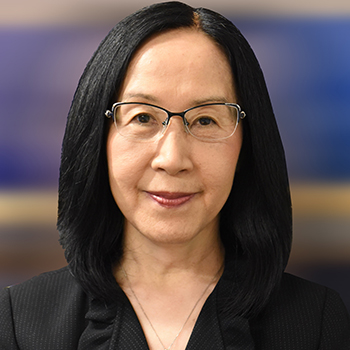Next Gen Navigator
Developing and Supporting a Strong, Diverse Science Teaching Workforce
Posted on 2022-02-24

Disclaimer: The views expressed in this blog post are those of the author(s) and do not necessarily reflect the official position of the National Science Teaching Association (NSTA).
Policy Advocacy for Science Teaching Workforce
As a science education community, we can develop a storyline of the recent history of science education reform. A Framework for K–12 Science Education (National Research Council 2012) provided a vision for science education grounded in research on what counts as science and how children learn science. The Framework guided the development of the Next Generation Science Standards (NGSS Lead States 2013) as a policy initiative that, in turn, has guided practice. Now with unprecedented societal challenges that are disproportionately impacting minoritized groups, Call to Action for Science Education: Building Opportunity for the Future (National Academies of Sciences, Engineering, and Medicine 2021) compels science and STEM educators to take action to create better, more equitable science education.
Taking a systems perspective, the Call to Action starts from the vantage point of policy. For example, the report’s first recommendation calls for the White House, with leadership from the Office of Science and Technology Policy (OSTP), to “raise the profile of science education and elevate the importance of access to high-quality science learning opportunities for all students across K–16.” (p. 9)
In a series of four special issues of the Next Gen Navigator, the National Science Teaching Association (NSTA) is engaging science and STEM educators in the report’s call for better, more equitable science education across K–16. The first special issue, aptly themed “Making Science Education a National Priority,” was guest edited by Erika Shugart, NSTA Executive Director. This second special issue, in keeping with a primary mission of the NSTA, focuses on “Developing and Supporting a Strong, Diverse Science Teaching Workforce.”
In this issue, we offer three blog posts addressing different aspects of the science teaching workforce. Michael Nocella calls on science educators to change systems by confronting “the racial and gender inequities that continue to exist in and assert themselves upon science education.” Felicia Moore Mensah addresses recruitment and retention of teachers of color, while Scott Grapin, Enrique Suárez, and María González-Howard offer ways to support science teachers of multilingual learners. As described in their brief biographies, the authors of the three blog posts represent science educators with varying backgrounds in terms of race and ethnicity, gender, career stage, and teaching context.
I would like to close by highlighting what I see as a key contribution of the report. The Call to Action introduces avenues for policy advocacy that may be unfamiliar to science and STEM educators. For example, the report highlights the role of the OSTP and the President’s Council of Advisors on Science and Technology (PCAST) in advocating for science and STEM education. It is notable that neither the OSTP nor the PCAST include K–12 science and STEM educators to represent the more than 50 million students in K–12 public schools. The question for K–12 science and STEM education is “How can we claim our seat at the table in improving the education system?” From my perspective, having a seat at the table in discussions around national policy will be crucial to answering the report’s call for better, more equitable science education.
References
National Academies of Sciences, Engineering, and Medicine (NASEM). 2021. Call to action for science education: Building opportunity for the future. Washington, DC: National Academies Press.
National Research Council. 2012. A framework for K–12 science education: Practices, crosscutting concepts, and core ideas. Washington, DC: National Academies Press.
Next Generation Science Standards Lead States. 2013. Next Generation Science Standards: For states, by states. Washington, DC: National Academies Press.

Okhee Lee
Next Gen Navigator Guest Editor
Okhee Lee is a professor in the Steinhardt School of Culture, Education, and Human Development at New York University. She was a member of the NGSS writing team and served as leader for the NGSS Diversity and Equity Team. She was also a member of the Steering Committee for the Understanding Language Initiative at Stanford University. Her research involves integrating science, language, and computational thinking, with a focus on multilingual learners. Her latest work focuses on justice-centered STEM education to address pressing societal challenges using the case of the COVID-19 pandemic.
>> People Are Systems: NASEM's Call to Action Compels Science Educators to Transform Practice
By Michael Nocella
>> Multiple Pathways to Recruit and Retain a Strong, Diverse Science Teaching Workforce
By Felicia Moore Mensah
>> Developing a Science Teaching Workforce Prepared to Teach Multilingual Learners
By Scott E. Grapin, Enrique Suárez, and María González-Howard
Note: The Next Gen Navigator is an e-newsletter from NSTA delivering information, insights, resources, and professional learning opportunities for science educators by science educators focusing on the themes highlighted in Call to Action for Science Education and on the Next Generation Science Standards and three-dimensional instruction. Click here to sign up to receive the Navigator.
The mission of NSTA is to transform science education to benefit all through professional learning, partnerships, and advocacy.

